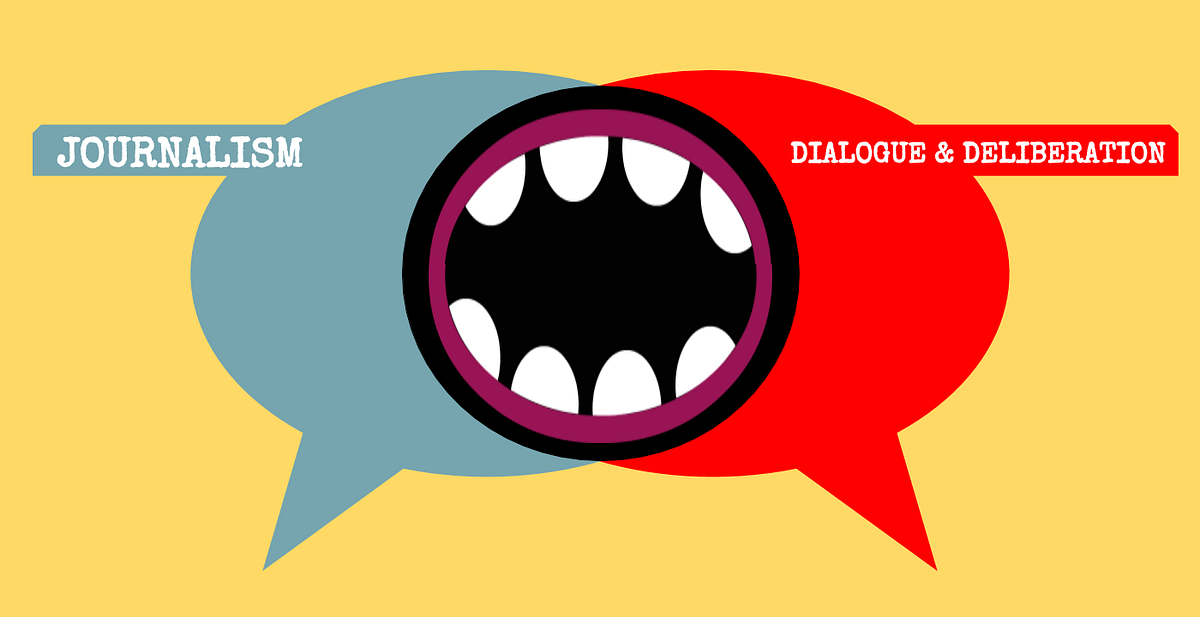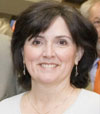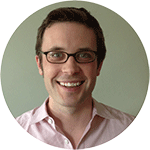Our media collaborations panel during the NCDD 2016 conference had the whole room buzzing. NCDD member Peggy Holman facilitated a conversation between accomplished journalists and conference participants on how the D&D field can create stronger partnerships with media makers, and we uncovered some very powerful possibilities for D&D-journalism collaborations.
One of the panelists was Chris Faraone of the Boston Institute for Nonprofit Journalism, and he recently penned an article reflecting the conference and those possibilities. In it, he shared advice for how our field can bring them to fruition that we hope our members will take to heart, so we encourage you to read the piece from Chris below or to find the original version here.
Talk Kin: Where Journalism Meets Dialogue and Deliberation
 “Where the heck have you all been my whole career?”
“Where the heck have you all been my whole career?”
I found myself thinking and saying such things repeatedly at the National Conference on Dialogue & Deliberation, which was held outside of Boston two weeks ago. I only learned about the host group, the National Coalition for Dialogue & Deliberation (NCDD), a few months earlier, but by the time its members came to Massachusetts for their biannual gathering I felt like I was meeting long-lost cousins.
Other realms cross over into media as well – from research and academia, to public relations, to technology and programming. But while several virtually simpatico professional alliances may lurk out there, the discovery of Dialogue & Deliberation – or simply D&D for the initiated – was particularly surprising and exciting. Comprised of voices from a wide range of fields, from life coaches and lawmakers to psychologists and social workers, they’re primarily communicators, and are therefore kin to any journo worth a damn.
The theme for NCDD 2016 was “Bridging Our Divide,” a timely guideline amidst so much partisan crossfire and political warfare, but also a reference to how the D&D community is ready to engage new partners and expand. In their welcome letter, NCDD Executive Director Sandy Heierbacher and Program Director Courtney Breese wrote that they hoped attendees would “take a systemic look at why so many initiatives in our field [D&D] are underfunded and under-reported,” and added that their intention for the weekend was to “provide an opportunity to build a new foundation of relationships … and create new momentum.”
Which is where I entered the picture. This year NCDD tapped Journalism That Matters, a nonprofit that convenes conversations (one of which inspired me to start the Boston Institute for Nonprofit Journalism nearly two years ago) to foster collaboration, to help bridge individuals and outlets doing D&D with those involved with journalism.
According to JTM Executive Director Peggy Holman, “the engagement space is where journalists and communities intersect,” and after taking in the conference and participating in the final plenary which examined this topic, I’m happy to report that I believe there’s absolutely infinite potential in a D&D and journalism matrimony. I have no doubt that deliberation is an industry that I will write about, revisit, and consider for years to come; for now, here are my takeaways from the NCDD event neatly parsed into two sections: comments that I heard in last week’s sessions that are relevant to my reportorial experience, and ideas for how these fields can start co-functioning.
ENGAGED MINDS THINK ALIKE
“We need to take this work to a whole new level. There’s a need for media organizations that are tied to the community in a meaningful way.”
This is essentially the whole idea driving our nonprofit journalism model. Whereas many university-based incubators recruit staff from the top J schools and provide content to major outlets, BINJ proudly works with freelancers and even advocates from the communities we cover, and primarily publishes through local, independent, and ethnic news outlets. In short, we’re the kind of grassroots operation that has open arms for interesting collaborations.
“Build on what’s already happening. We need to get people where they already are.”
Yes. Yes. Yes. Yes. This was a major part of the idea behind BINJ, which is not a publication in and of itself but instead boosts and adds to other outlets. As it relates to how we can connect with various non-journalistic organizations, D&D or otherwise, my philosophy has always been to harness as much content from the real world as possible. If more reporters did that, if they actually left their desks, there would be less insultingly trite “think” pieces, and hopefully more articles featuring people who really know something.
“There’s a hunger out there not just to be heard, but to be engaged at a level that we haven’t seen before.”
Even I am getting tired of “engagement” growing into such a buzzword of late – it’s what journalists should be doing anyway, all day and all week, I can’t stress that enough. Similarly, D&D people may be miffed to see big media organizations getting credit for the kinds of interactive programs, public dialogues, and forums NCDD members have done for decades.
There’s a positive side to said trend as well though. At least from where I’m thinking. I come from the alternative media tradition where people are entrusted to report on situations in which they are stakeholders: women on feminist movements; people of color on civil rights issues; poor people on poverty; students on education. And so on. This is a point of pride, as well as a model on which budding D&D media makers can build in beginning to publish material.
“Learning relationships.”
This is just a phrase I heard a few times that resonated with me. Considering how bad reporters (including myself on occasion) can be at building with our sources, as opposed to simply prodding them for quotes, we can all use a reminder of how learning should be symbiotic.
“So that we can tell the world our story. So this work can get out in the public.”
This may be even easier than many dialogue specialists realize. Or maybe they realize that there are some awesome opportunities to get the word out about everything they’re doing, but feel as if there’s some kind of technological roadblock. I’ll address this more below, but there are no such impediments. All you need is time or hired guns, and every last critical deliberative note can be disseminated widely via social media and other channels.
 LET’S GET IT STARTED
LET’S GET IT STARTED
Consider journalists your friends.
Members of the media are potential pals and allies to the D&D world, or at least we should be. Furthermore, both groups can collaborate in certain cases, while in others hacks can demonstrate to NCDD members how to generate media, since opportunities for traditional coverage are dwindling. As some of my esteemed co-panelists at the D&D conference noted, it is increasingly a waste of time for nonprofits, for example, to hassle journalists for favorable ink.
Even if one does land an occasional story in a newspaper of record, that’s still unlikely to amount to more than a quick hit that’s soon forgotten. This may sound somewhat cliche, but in 2016 it’s more important to generate your own media than it is to send out press releases.
Get involved with local and community news organizations.
This goes back to that line I heard at NCDD: Build on what’s already happening. There may be existing opportunities in your area to get in the same room with reporters, or at least to get thinking like them – from Mediabistro meetups, to civic engagement events like those being held by more and more media outfits, from nonprofits to commercial ones. BINJ, for example, has a Community Advisory Board with representatives from various nonprofits and advocacy groups; though we don’t always agree with members, we have spurred instructive dialogue with all of them.
If none of the community, nonprofit, local, or alternative outlets in your area have a comparable mechanism for input, maybe D&D experts can help get something started.
Start chronicling your D&D work.
A lot of people in the D&D world are already doing reporting in some way – they’re just not always publishing the fruits of their hard work, or organizing assets in a fashion fit for mass consumption. Think of the possibilities though – from starting a podcast or a cable access show, to taping and transcribing certain dialogues to create oral histories.
The production of compelling content on a regular basis, even in micro-installments on social media, will require somebody with press savvy or even real newsroom experience to curate and edit. But as I noted on my panel at the NCDD conference, no matter who is making the media, it’s important that they stop thinking of the task as public relations, and start considering themselves storytellers.
You can find the original version of this piece by Chris Faraone of BINJ on Medium at www.medium.com/binj-reports/talk-kin-686f7f501427#.rlsrt0357.
![]() Many in the United States have felt for some time that our elected officials don’t put the public’s concerns first. Now, years of diminishing trust in government and a growing divide between elites and the public have culminated in 2016: a growing, rarely productive populism and a divisive election season here in the United States.
Many in the United States have felt for some time that our elected officials don’t put the public’s concerns first. Now, years of diminishing trust in government and a growing divide between elites and the public have culminated in 2016: a growing, rarely productive populism and a divisive election season here in the United States.


 LET’S GET IT STARTED
LET’S GET IT STARTED





 NCDD conferences are always an in-person reminder of just how broad and powerful this field is. We are truly honored to be working to support our network and the important work you do. We will continue to share more in-depth updates on specific outcomes and next steps that emerged from the conference over the next weeks, so continue to check back here on the news blog for more.
NCDD conferences are always an in-person reminder of just how broad and powerful this field is. We are truly honored to be working to support our network and the important work you do. We will continue to share more in-depth updates on specific outcomes and next steps that emerged from the conference over the next weeks, so continue to check back here on the news blog for more.

 Betty Knighton, Director of the West Virginia Center for Civic Life
Betty Knighton, Director of the West Virginia Center for Civic Life Shari Davis, Director of Strategic Initiatives at the Participatory Budgeting Project
Shari Davis, Director of Strategic Initiatives at the Participatory Budgeting Project Kyle Bozentko. Executive Director of the Jefferson Center
Kyle Bozentko. Executive Director of the Jefferson Center Carolyn Lukensmeyer, Executive Director of the National Institute for Civil Discourse
Carolyn Lukensmeyer, Executive Director of the National Institute for Civil Discourse